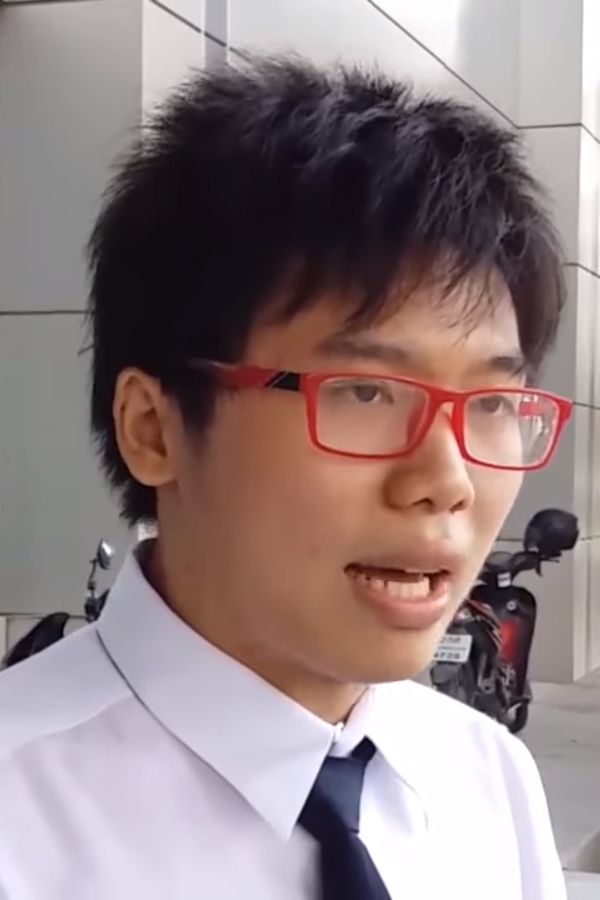by Brian Hioe
語言:
English
Photo Credit: WikiCommons/CC
THE CHULALONGKORN UNIVERSITY administration in Thailand is expected to target student activist Netiwit Chotiphatphaisal, after a pro-democracy student orientation organized by Chotiphatphaisal. The student orientation took place on July 20th.
Chotiphatphaisal, currently 24 years old, originally rose to international prominence after refusing to bow before the statue of King Rama V at an annual event held by the prestigious Chulalongkorn University in 2016. Subsequently, in 2017, Chotiphatphaisal and other student activists walked out of a university ceremony to swear an oath in front of the statue of Rama VI on campus.
 Netiwit Chotiphatphaisal. Photo credit: Prachatai/CC
Netiwit Chotiphatphaisal. Photo credit: Prachatai/CC
The 2017 incident led to retaliatory measures from the Chulalongkorn University administration, which removed Chotiphatphaisal from his position as president of the student council. But, with a wave of international condemnation over the incident, among those to speak on behalf of Chotiphatphaisal after the incident were seven Nobel laureates, Noam Chomsky, Steven Pinker, and others.
Eventually, public pressure and a protracted lawsuit led Chotiphatphaisal to be reinstated as student council president in 2019. Chotiphatphaisal ran again for student council this year, winning by large margins of 10,324 out of 14,691 votes—winning 8,000 more votes than his nearest competitor. However, it is to be seen whether Chulalongkorn University attempts to remove Chotiphatphaisal from his position from the student council following this most recent incident.
The present incident took place after Chotiphatphaisal invited several well-known pro-democracy activists to speak at the student orientation. This included Panusaya “Rung” Sithijirawattanakul, a student activist who was named to BBC’s “100 Women 2020” list, Parit “Penguin” Chiwarak, a student leader who began a 46-day hunger strike after being arrested in connection to protests, and Pavin Chachavalpongpun, a Thai academic living in exile in Japan.
Following the event, the Chulalongkorn University Department of Student Affairs issued a condemnation of the event. The event touches on sensitive political issues, given the unresolved legacy of student-led protests against the military junta and monarchy in Thailand last year which called for prime minister Prayut Chan-o-cha to step down and the reform or abolition of the monarchy. Protest demands included the repeal of draconian lese majeste laws used to target political critics and for democratic elections to be permitted. The military junta has overturned democratic elections multiple times in Thai history and the current monarch, King Rama X, has a reputation for hedonistic living on the public dime.
At its peak, protests mobilized up to 100,000 participants on September 19, 2020. Although some constitutional reforms were eventually promised by the government, the government sought to delay voting, prompting further outrage. Likewise, police responded with tear gas, water cannons, and beatings against protesters. Protests took place concurrent with the COVID-19 pandemic and a contributing factor to them was outrage over the poor government response to the pandemic.
“Universities must help promote critical thinking, protect academic freedom, and freedom of expression. They must not try to control the actions & thoughts of students.” – Thai activist, president of @ChulalongkornU’s @SGCU_Chula, and former #OsloFF speaker @NetiwitC pic.twitter.com/MjHTgeQoIL
— Human Rights Foundation (@HRF) July 21, 2021
Statement by the Human Rights Foundation about the incident
Nevertheless, it should be clear that given the restriction on political freedoms in Thailand, simply one’s choice of speakers for an event can lead to reprisal from authorities. Chotiphatphaisal faced pressure from authorities in 2016 after inviting Hong Kong student activist Joshua Wong to speak in Thailand. This was an incident that led to Wong being detained at the airport and turned away.
Support for Hong Kong from Chotiphatphaisal has continued in the years since, with the Chulalongkorn University student council recently issuing a statement about the police raids on the student union of the University of Hong Kong. The past few years have spotlighted solidarity between regional youth-led movements for democracy as part of the phenomenon known as the Milk Tea Alliance, though Chotiphatphaisal’s efforts at establishing international ties predate this.
Otherwise, Chotiphatphaisal has faced numerous charges for violating restrictions on public gatherings for participating or organizing protests in past years. Authorities have sought to use Chotiphatphaisal’s activism to frame him as a miscreant and a lawbreaker, but at heart are the same issues regarding contemporary Thailand’s lack of democracy that have been at stake since last year. One witnesses a microcosm of the broader issues facing Thai society as a whole in efforts by the school administration to crack down on Chulalongkorn University’s student council, replicating the military junta’s overthrow of democratic institutions—at the university level.

